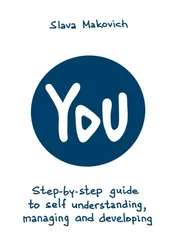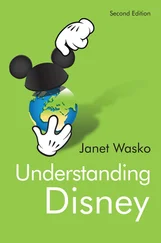Meanwhile, at the beginning of the twenty-first century, the British are reviving their enthusiasm for history. Whether this excitement will last is not clear, but serious academic historians who have the gift of communication enthrall millions with their television programmes. History books (not just about war) fill the shelves in bookshops, and fiction writers turn to historical themes in order to examines our present predicament. All over the country groups of amateur historians write the history of their town or village; new museums open almost daily. Partly the enthusiasm is no more than a sentimental dream of the past, full of stately homes and romantic aristocrats. But much of the passion is more significant. Although we have not been cut off from our past by a colossal fracture in our history (as have the Germans and the Russians, for example) we nonetheless find a great need to relate our contemporary experience to what has gone before. So people watch the TV programmes, read the books, study the documents, dig up the ancient cities, and wander round the museums asking themselves the questions I have discussed in the first part of this book: Who are the British and how do they come out of the past into today?
Part Two. Our Country and How We Inhabit It
Russia is a vast country: it goes on and on and on ... and on. Your legends and dreams and historical images relate to the idea of an endless territory. Your great landscape painters and many of your writers try to create in paint and in words that immensity which is both frightening and strangely consoling. What about the legends, dreams and images of the British? It is simple: we live on an island. We are bounded by the sea in all directions. No-one, even those in the very centre of the country, lives more than a hundred and twenty kilometres from the coast. Most of us do not live in actual sight of the sea, but there must be very few British people who have not walked, clambered or simply driven down to the water and gazed at the waves that come in endlessly across seas and oceans.
Many of us have seamen in the family: merchant sailors, fishermen, men who work the ferries, enthusiasts who skipper small sailing boats around the island or across to France, people who live on the hundreds of smaller islands round our coast and have to cross dangerous seas to reach the mainland, weathermen and lighthouse keepers, harbourmen, those who serve in the Royal Navy, and those who patrol, inspect and keep our shores safe from damage from the sea.
The shoreline itself is immensely varied. The British, wherever they travel, are constantly bumping up against the coast, and when they get there they may find long sandy beaches, rocky inlets, tall cliffs, mudflats or placid coves. Tides reach up the rivers; the Thames is tidal in London, and London smells of the sea.
It might seem that living on an island makes one feel claustrophobic. I do not think this is much of a problem. Great Britain (England, Wales and Scotland) is a crowded island, but it is indubitably 'home', a very definable area which clearly distinguishes 'us' from 'them'. ('Them' is anyone on the continent of Europe.) Whatever the limitations of this view which is discussed politically in a later chapter, it gives us a strong sense of national identity because those shores have always guarded us, and clarified for us the beauty of our home. In Shakespeare's play, Richard II, the young king's elderly and dying uncle John of Gaunt, speaks of
This royal throne of kings, this scept'red isle,
This earth of majesty, this seat of Mars,
This other Eden, demi-paradise,
This fortress built by Nature for herself
Against infection and the hand of war,
This happy breed of men, this little world,
This previous stone set in the silver sea,
...This blessed plot, this earth, this realm, this England...
(Scottish and Welsh people can point out that the 'precious stone' is the whole island, not just England!)
Inspired by the Biblical garden of Eden, Shakespeare, through the words of Gaunt, asks us to think about England as a garden, a small plot of land, a precious stone, lived in by fortunate people. Nature, he claims, is on our side, and we are (as history has proved) protected from invasion.
Perhaps the essential quality of our English landscape is its variety. I was once driving a Russian friend in the country about seventy kilometres from our home. We stopped to take a photograph.
'What do you think of this view'?' I asked.
'It's very beautiful, but it's very unEnglish,' he said.
UnEnglish? I looked at the rounded chalk hills, bare of trees, covered with thin grass and tiny wild flowers, where sheep were grazing. It was hard to think of anything more English. Then I realised that the countryside was very different from that which my friend had seen in the two weeks he had been staying with us: first, a region of river meadows with long lines of poplars and willows, and then a region of beech-covered hills with lanes twisting between high banks shadowed by large trees and thick with leaf-mould, I have called these 'regions'. They are forty kilometres apart from one another, and each of them is quintessentially a part of southern England. As you go north - or east or west - the landscape changes continually, through ironstone country, limestone country, East Anglian fens, northern moorlands, the red earth of the Welsh borders or the forests of Northumberland. Britain may be a small island by Russian standards, but geographically it is immensely varied.
The geological structure is complicated and convoluted. Children at school learn that the northern part of Scotland used to belong to Canada, but sailed away until it collided with Britain -and that this explains the long diagonal rift across Scotland that includes Loch Ness and its monster. Nobody is very surprised. The bones of our country are close to the surface, so that even though the climate is officially 'mild and damp' throughout Britain, we know that within a distance of less than one hundred and thirty kilometres we can struggle with sub-arctic conditions in the Scottish Cairngorm mountains, or enjoy a subtropical forest garden on the Scottish West Coast. None of our rivers are large but it is possible to trace the course of a river from mountain spring to tidal estuary in one day's long walk; and if you stand on the top of the highest mountain in Wales and look east towards the Urals on the other side of Europe, there is nothing higher in the way to obstruct your hypothetical view.
Our agriculture and our industry were (and, up to a point, still are) intimately related to these variations in the geography of our country. To understand how we live, work and distribute our products, you need to consider the relationship between the land and the sixty million people who live on it which is quite unlike the relationship of Russia and the Russian people. Because we live on a crowded but fertile island, land is thought of as something to be used, to be developed, to be given a purpose. If you were to fly a low-flying aircraft over England you would see a land-use pattern unlike that of any other country. It is a pattern of early settlement, winding lanes following the boundaries of mediaeval land-ownership, eighteenth century agricultural changes, nineteenth century industrial development, and twentieth century adaptations to what had become out-dated established usages. Our history is down there.
In England, unlike most of Europe, we never developed a peasant culture of more or less self-sufficient family units farming their own bit of land and living limited but independent lives. Most people were employed by landowners, either as tenant farmers or as agricultural workers. The workers would improve their poor wages by spinning and weaving cloth, by growing their own vegetables, and by grazing their cows or sheep on common land. But new methods of farming invented in the eighteenth century made the land much more productive, and therefore the common land much more desirable as a source of profit. So landowners began to enclose the common land, depriving workers of their traditional rights to raise animals. The land was enclosed by planting hedges round it, creating small protected areas of irregular shapes, according to the line of ancient boundaries and the haphazard development of the scheme. The delightful effect of patchwork green, characteristic of our countryside, is a memorial to early efficient farming and to unfortunate landless labourers.
Читать дальше












